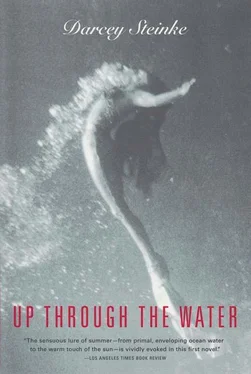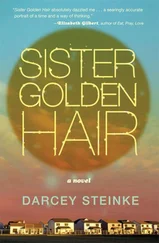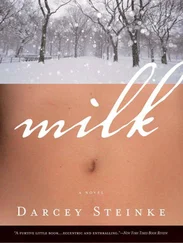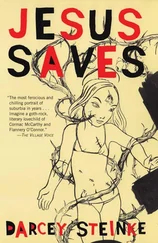After work, Birdflower pitched his sweatshirt onto the passenger seat while watching Lila take her break. She ate onion rings at the picnic table on the porch, listlessly looking down into the place mat scene of sailboats on a blue bay — wind like cursive drills across the sky.
He got in, drove the rattling van way up the island highway, and eased into a shallow shoulder of soft sand. No one ever believed him when he explained about his name. They all thought it was given by a guru or a favorite bedmate in a commune — but it had been his mother who called him that. As a kid he had memorized and listed the names of birds and flowers. He remembered chanting them before bed, Yellowthroat, House Finch, Lily, Killdeer, Bluebells, Bunting, Warbler, Winter Wren, Larkspur, Magpie, Murre.
The glove compartment flapped down, he shuffled maps, grabbed the plastic bag, slammed the door, and walked the path, surrounded by waving sea oats. The sun was eye level. He climbed the lifeguard platform, sat, and crossed his feet high on one side. The last light was soft on the water, its motion like tiny tame waves against the side of a bathtub. Birdflower pulled out his pipe shaped like a totem pole. He placed a pinch of weed into the bowl and lit it. He breathed the sweet smoke in, and in an easy way let it go.
Birdflower's shoulders opened, his eyes narrowed and fogged so the sea was a thin line with frayed edges. Ashes fell and rode on his curving chest hairs. Birds pattered by the water's edge; the tap-tap of their frail feet and the ocean pull on pebbles cleared his mind.
He thought of the party he'd gone to with his girlfriend the summer before he came to Ocracoke. Libby knew the people whose house it was and they were supposed to go together. But that afternoon, when he'd admitted he didn't have his half of the rent, she accused him of loafing. He'd walked to the door, said a string of things he later regretted, and left. He'd wanted to find her that night to apologize, and he'd gone into the big house filled with people and searched all the rooms on the first level. On the second-floor landing he'd seen a girl who posed at the art school and he asked her if she'd seen Libby. “She was in bad shape,” the girl said, and pointed upstairs. The first bedroom he'd looked in was empty, but the next door was barred by a liquor bottle. Inside, blue from a shaded lamp illuminated Libby's nude body and a man sleeping near her. By the next week he was on the island, working at the Trolley.
Above the beach the stars winked. He lit a cigarette. Sparks scattered from the tip, and he turned his hand so the wind off the water would not interfere.
* * *
Lila sat on a stool, ate a school of pizza-flavored fish, and watched “I Love Lucy” on the black and white TV over the bar. Intermittently she wrote in her diary, brief scratchy things, pencil to her lips: today about Eddie and the pony. Lila said to the bartender, “Playa Billy Joel tape,” and as it came on she mouthed the words to “Only the Good Die Young.” Last summer, she'd been too young for restaurant work. So her mother, who was sick of her hanging around the house complaining about everything, had forced her to slave as a maid. She remembered dancing around the rooms, kicking into the bathrooms, and throwing herself on the beds, smoking cigarettes and watching soaps. “All My Children” as she lugged the bags of towels to the stairs. “Days of Our Lives” as she traveled from room to room making beds. “As the World Turns” when she placed new pink soaps by the tub, and “One Life to Live” as she did mirrors, the glass always clearing to her face in a cloud of cigarette smoke.
“Can I have another Coke,” Lila said. “With two cherries this time.”
The bartender shook his blond head. “Your teeth will rot right out of your mouth.”
Lila thought she heard Birdflower's voice outside the bar. She'd been waiting for an hour. He always came to the bar when his day shift was finished. Her plan was to approach him for a joint. She figured she'd have a better chance of him saying yes in front of his friends. They might even ask her to sit with them. They'd tell drug stories, like the few Birdflower had on those first slow kitchen afternoons. What she liked to hear best were the stories of him getting stoned and feeling like a genius, like he knew with perfect clarity how everything connected.
She pretended not to see him come through the door with David and Michael, the guys who ran the tourist sailboat, and head for the corner table. In a minute, a waitress brought mugs and a pitcher of beer.
David put his bare feet up on the table and told Birdflower about a tourist they took out on the boat. “One of these divorcees,” he said. “Gold jewelry. Silk tank top. She pulled a stick of butter from her cooler.”
“Peeled the foil off the tip,” Michael added, and showed with his fingers. Birdflower smiled. “Then she rubbed it on her nipples. They were the size of half-dollars.”
“Needless to say,” David said, “we took her out a little farther than usual.”
All three laughed as Michael tipped the pitcher to fill the mugs.
Birdflower said, “Some good weed's coming up from Florida around the end of the month.”
“Yeah,” David said. “That last batch wasn't worth shit.”
“You know Emily?” Birdflower said.
“Of course we know Emily.” Michael smiled, thinned his lips over his teeth.
“Can she come along fishing next weekend?”
“That would be up to you,” David said. “Long as that islander isn't with her.”
Lila rehearsed what she would say, drank the rest of her Coke, and headed back to their table.
“Got one doobie?” she said, firmly like drug addicts she'd seen on TV.
Birdflower put his head down. “Not for you.”
“You think I'm a baby.” Lila raised her voice. “You think you're great,” she said. “All your long hair and stupid stories.”
“What do you want?” Birdflower said.
She placed a stray hand on her hip. “Weed,” she said.
“Get out of here, Lila,” the bartender yelled.
Birdflower rocked back on his chair. “Go play,” he said.
She ran out with her hands over her face. He saw the backs of her tan legs — thin and spindly as a colt's. “If I were a couple years younger.” Birdflower turned back toward the table. “She'd be trouble.”
* * *
With a full moon behind the cedars, Lila walked along the sand street and saw the family graveyards to one side, old stones and new ones in plots no bigger than a modest front yard. She touched the white fence surrounding her family's plot. “I know things,” she said out loud.
She'd been off the island a dozen times, to Hatteras, Nags Head, once on a class trip to Washington, D.C., which was lush, not the weathered beige of everything on the island. All the way up the coast, rows of tobacco plants spread out as straight as lines on paper. Every few miles, there was a trailer or shack, and women in pastel-flowered housedresses sitting in lawn chairs, flesh jiggling on their upper arms. It went on forever. Lila always imagined them driving off the island, riding underwater, seeing big fish, the car's headlights shining on pink seaweed and purple coral. Washington was like another planet, with those marble buildings as straight and white as space stations and the artifacts in them, carefully chosen and numbered. Lila thought if the world ended it wouldn't matter, because like the flood in the Bible, there would be at least two of everything left. Best of all, she liked the long dark hallway of tall and stately first ladies. Everyone in evening gowns of sequins, taffeta, or silk. The young ones were her favorites, because she could see herself among them, a tanless woman, mannequinthin, with a built-in sophistication. On the way home, she'd fallen asleep against the back seat and dreamed of ladies, swirling elegantly, moving their slender arms and necks slowly in time with the waltz. There was one in a green dress — tiny metallic-looking beads sewn close together like scales — who was dancing with Lila, holding her in her arms, her simple movements telling Lila everything. But when Lila looked up, it was into gluey fish eyes and the woman was a slippery sea trout with its gills winged out frantically.
Читать дальше












